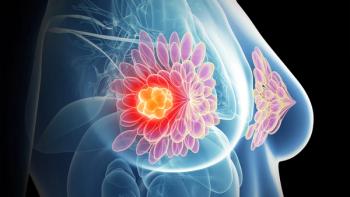
Opioid-Free Regimen Is Feasible After Laparoscopic Surgery
Women who were prescribed non-opioid pain management after their gynecologic cancer procedure tended to have quick recoveries.
Women who underwent laparoscopic surgery for gynecologic cancer may not need opioids to manage their pain after the procedure, according to recent research conducted at the University of Rochester James P. Wilmont Cancer Center.
“There's been such an increased focus on the opioid crisis. And we all can play such an important part in helping to control this crisis,” said Karen Kugel, BSN, RN, OCN, assistant nurse manager of the gynecologic cancer division at the Wilmot Cancer Center.
Kugel and her team conducted a study analyzing the outcomes of non-opioid pain management for women treated with laparoscopic surgery. She recently sat down with Oncology Nursing News to discuss the findings.
Oncology Nursing News: Talk a little bit about your research on non-opioid management of gynecologic cancer pain, and why this is an important topic.
Kugel: There's a group called ERAS which stands for Enhanced Recovery After Surgery, which was developed over 10 years ago, internationally, that has used evidence-based practice and research to develop better recovery protocols for post-op patients. So, keeping their recommendations in mind, our hospital decided to adopt a non-opioid pain regimen for post-operative pain consisting of Tylenol and ibuprofen, and we were recommending this and prescribing this to patients.
The nurses had often talked to the patients about their post-op regimens and decided to do a pain audit of performance improvement project that, first of all looked at the effectiveness of the Tylenol and ibuprofen regimen. And a secondary end point was to really look at how many patients were actually being discharged with opioids, which would be an interesting piece.
So we looked at both pieces. And we really found out some interesting information that was really helpful to our practice and improve the outcomes for our patients. And it really ultimately led us to form a team of providers in nursing. And the providers would include the attending nurse practitioner, myself, and we put together this based on the rest protocols, post stuff, not only pain regimen, but a whole pathway for our post-operative patients. So we used a team approach — inpatient and outpatient – to develop this protocol. And we've adopted our own ERAS protocol, and we have rewritten our pre- post-op instructions for patients based on our findings in this research study.
What were the findings of the study?
Postoperatively, the nurses would call and do a phone interview with our patients. And they would ask what they were prescribed, the effectiveness of it, whether or not they were prescribed an opioid in addition. And with that research, we found that, for laparoscopic procedures, upwards of over 75% of the patients had obtained substantial relief with Tylenol and ibuprofen regimen. We also found that there were several that were sent home with an opioid, just a prescription that never filled it, because they didn't need it. There were also patients who didn't even need any analgesic at all postoperatively.
But the interesting finding was this: What we were looking to see is what we were prescribing to patients, because we went from a total opioid prescribing practice postoperatively to a non-opioid approach. So, we were really curious and wanted to assure our ourselves that this was definitely something that was going to improve the patient's post-op outcome. So based on those findings, we continue to prescribe and put that as part of our pathway.
How did patients respond to the non-opioid pain management regimen?
The reception has been extremely positive. Opioids, as many people know, come with other [adverse events]. And what we have found that in many cases, [opioids] actually slowed down our patients’ post-op recovery. It slows down your body function, it makes you lethargic. So because our patients go home in such a short period of time now with the laparoscopic procedure, it's important for them to be as independent as possible when they get home by prescribing the non-opioids.
We did find that their recovery, with many patients a day or two after surgery say that they just feel great. Their bowel function returns very quickly. They're eating a full diet. They're ambulating and it's much different than it was many years ago when we just automatically would prescribe narcotics postoperatively.
More:
Newsletter
Knowledge is power. Don’t miss the most recent breakthroughs in cancer care.




















































































